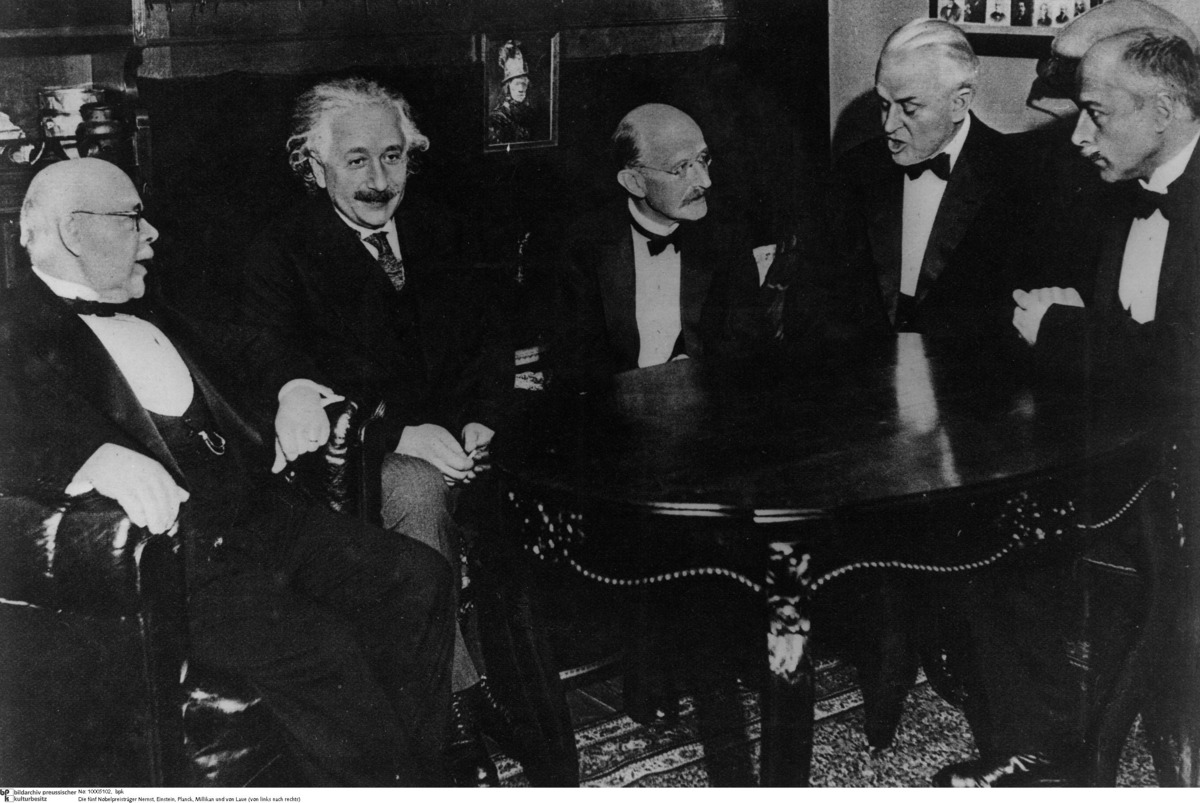Abstract
Until 1933, German science and research was internationally known and
renowned. The National Socialist takeover, however, represented a
significant setback for all branches of study. Thousands of politically
or racially undesirable academics and researchers lost their jobs. Many
of them were forced to emigrate, while others left the country out of
protest or withdrew from public life. The photo shows (from left to
right) the Nobel Prize winners Walther Nernst (Nobel Prize for
Chemistry, 1920), Albert Einstein (Nobel Prize for Physics, 1921), Max
Planck (Nobel Prize for Physics, 1918), Robert Millikan (American
physicist, Nobel Prize for Physics, 1923) and Max von Laue (Nobel Prize
for Physics, 1914). Nernst stopped doing research in 1933. That same
year, Einstein chose to remain in the United States after finishing a
lecture tour there. Planck resigned from the office of president of the
Kaiser Wilhelm Society in 1936. Before stepping down, he had tried to
prevent the dismissal of Jewish scientists. Laue was forced into early
retirement in 1943. Unlike Nernst, Planck, and Laue, the majority of
“Aryan” researchers made arrangements with the Nazi regime.
